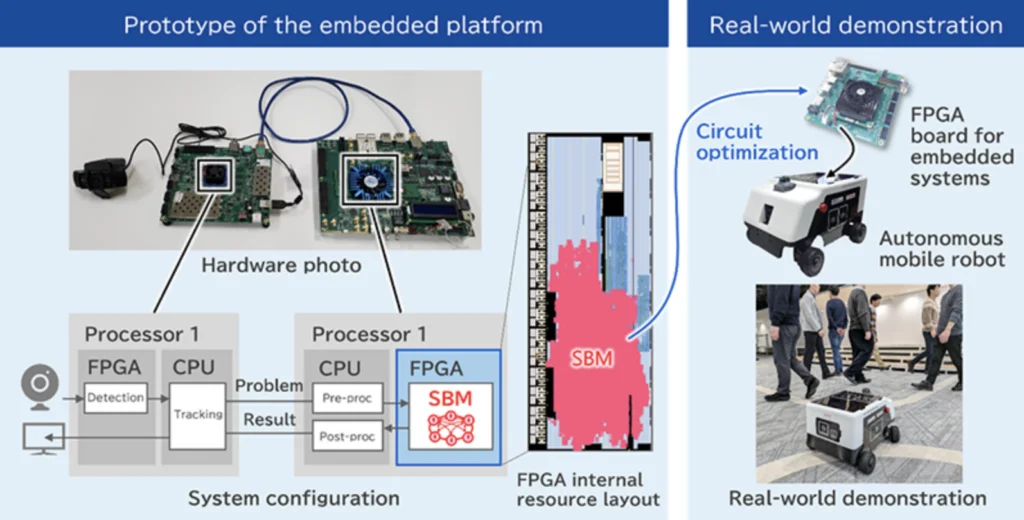Because quantum computing requires a background in research, it’s important for those entering the quantum workforce to go through one of the many rigorous quantum computing Ph.D. or master’s programs.
There are many universities around the world offering quantum computing as a graduate program. Many of them have also spawned some of the biggest names in quantum computing, allowing a bridge to form between research and industry. This is especially beneficial for students looking to transition from academia into a quantum computing job.
While the choices of quantum computing degree programs seem nearly endless, we at Quantum Insider want to offer a summarized list of what we believe are a few of the top ones to get a Ph.D. or master’s in quantum computing. This is not at all exhausting as many universities continue to advance their quantum computing programs or work with companies to help enhance opportunities for their students.
We’ve organized a list of the top 20 quantum computing master’s and Ph.D. programs to get a degree in 2025. Enjoy!

You may also like:
- Top 8 Online Quantum Computing Courses
- Top 18 Institutions Leading Quantum Computing Research
- Top 12 Quantum Computing Universities
- 7 Quantum Computing Books to Read [Ranked & Reviewed]
20 Quantum Computing Degree Programs
1. MIT’s Lincoln Laboratory
It’s no surprise that the top quantum computing graduate programs are hosted by some of the most prestigious schools. MIT is no exception, as its Lincoln Laboratory studies integrated nano-systems and quantum information. MIT’s masters in quantum computing focus on trapped-ion qubits as well as designing integrated quantum circuits. The laboratory offers several different projects to work on, all with real-world applications.
2. University of California Berkeley
UC Berkeley is one of the many universities in California looking into quantum computing, mimicking the hub of activity by quantum companies in that area. The Berkeley Lab works on harnessing quantum computing to help solve real-world issues. With research topics ranging from quantum materials to even training the quantum workforce, UC Berkeley’s quantum computing masters program offers a multi-disciplinary approach.
3. University of Chicago
The University of Chicago is one of the top quantum computing universities as it is home to the Chicago Quantum Exchange (CQE). The CQE connects other universities in the Midwest, as well as companies and other organizations to discuss developments in quantum technology. Because of the CQE, their quantum computing graduate students get exclusive networking opportunities and the ability to work on cutting-edge research.
4. University of Maryland’s Joint Quantum Institute (JQI)
The University of Maryland’s JQI offers a unique experience for students, as it includes quantum scientists from the National Institute of Standards and Technology (NIST), the University of Maryland, and the Laboratory for Physical Sciences (LPS). With this diversity in researchers, students have a wide range of quantum degree programs to choose from, including theoretical and experimental quantum physics.
5. University of Southern California’s Center for Quantum Information Science and Technology (CQIST)
Like UC Berkeley, USC’S CQIST focuses on quantum information science. However, its main focuses are on quantum computing, quantum cryptography, and quantum information theory. To research these subjects in their master’s and Ph.D. programs, CQIST brings in experts from both the school of Arts and Sciences and Engineering, giving all students an interdisciplinary focus on quantum computing technology.
6. California Institute of Technology (Caltech)
Studying quantum computing at Caltech, students become part of the university’s Institute for Quantum Information and Matter (IQIM). This institute is a National Science Foundation Physics Frontier Center, one of many government centers that encourage global collaboration and offer unique opportunities to quantum computing masters and Ph.D. students. These centers also work to give extra activities to enhance student education.
7. Stanford University
Stanford University has multiple researchers studying quantum computing, including the Q-Farm, an acronym standing for Quantum Fundamentals, Architectures, and Machine learning initiative. Q-Farm collaborates with Stanford’s National Acceleration Laboratory (SLAC) to develop answers to some of the biggest challenges for quantum computing.
8. Harvard University
Harvard University hosts the Harvard Quantum Initiative, which recently released a new quantum computing Ph.D. program in quantum science and engineering. The Harvard Quantum Initiative has a bustling hub of researchers focusing on properly training the next quantum workforce, while also working with industry partners to advance this technology. They offer a prize for Ph.D. researchers in quantum engineering as well as several summer research programs.
9. Carnegie Mellon University
The Pittsburgh Quantum Institute (PQI) at Carnegie Mellon University hosts over 100 members and workers to create a multidisciplinary quantum computing graduate program that involves engineering, business, philosophy of science, and other fields. PQI offers many opportunities to its quantum engineering students, including travel awards, poster sessions, public lectures, and outreach activities. The PQI also works closely with other centers, like the Pittsburgh Supercomputing Center, to work on this next-generation quantum technology.
10. University of Colorado Boulder
Within the University of Colorado Boulder lies JILA, a leading quantum physics degree institute created by a partnership between the University and NIST. JILA hosts its own NSF Physics Frontier Center, as well as several other centers focused on quantum computing and laser systems. Several of the scientists within JILA work closely with quantum computing companies, allowing their master’s and Ph.D. students better networking opportunities within Colorado, a growing hub of quantum activity.
11. The University of Waterloo
Canada’s University of Waterloo is one of the best well-known universities for quantum computing due to its Institute for Quantum Computing. With over 29 faculty members and 300 researchers, their quantum computing Ph.D. program works to train the next generation of the quantum workforce through global collaborations involving other universities, organizations, and quantum companies.
12. The University of Bristol
Both the Bristol Quantum Information Institute and its Quantum Engineering Technology labs help make the university one of the top places to get a Ph.D. or master’s in quantum computing. The Quantum Engineering Technology Labs develop prototypes for quantum applications, from computing to sensing to simulations. With a group of mentors and advisors, students of this quantum computing degree program will learn more about the career paths within this field and be assisted in their journey.
13. The University of Cambridge
The University of Cambridge has bolstered its reputation in quantum computing due to the company spin-offs from the university. Within the university are many research groups that study quantum devices and nano-systems. Because of its reputation, the University of Cambridge brings opportunities for network connections within the UK’s quantum hub.
14. Oxford University
Perhaps the largest center for quantum research in the UK, Oxford University‘s quantum computing graduate program hosts 38 different research teams and over 200 researchers. As their focus is to harness the power of quantum computing, students get hands-on experience developing next-level quantum technology, while being in the center of the UK’s quantum network.
15. Ecole Polytechnique
The Institut Polytechnique de Paris is one of France’s most prestigious universities, as it hosts the Center for Theoretical Physics (CPHT). Their quantum physics degree programs offer students a wide range of physics topics, from condensed matter to particle physics.
16. Delft University of Technology
Located in the Netherlands, Delft University’s Department of Quantum and Computer Engineering (QCE) combines computer science with quantum computing. In their quantum engineering degree program, students research quantum architecture and circuitry, combining it with computer design.
17. Austrian Academy of Sciences
The Institute for Quantum Optics and Quantum Information (IQOQI) lies within the Austrian Academy of Sciences. Their quantum computing degree programs range from quantum optics to superconducting quantum circuits to quantum nanophysics. With a large staff of researchers and scientists, this quantum computing university sits right in the middle of the quantum hub in Europe.
18. University of Science and Technology of China (USTC)
The USTC’s Division of Quantum Physics and Quantum Information is a world leader in quantum computing research. Scientists and students at this center focus on fiber-based quantum communication, free-space quantum communication, quantum memory, superconducting quantum computing, quantum simulation, and many other fields. With an electronics shop and over 37 faculty members, the USTC will no doubt continue to be one of the leading quantum computing degree programs.
19. The National University of Singapore (NUS)
The NUS’s Center for Quantum Technologies (CQT) focuses on bringing quantum computing students and scientists from around the world together to develop quantum devices. The CQT focuses on quantum research and education as well as quantum technology. Every year, the CQT runs a short-film competition about quantum technology called Quantum Shorts.
20. The University of Sydney
The University of Sydney is a growing location for quantum computing research, partially due to Australia’s first quantum computing conference last year. Research at the University of Sydney ranges from theoretical to experimental, offering a wide range of quantum computing masters and Ph.D. programs for graduate students. The University also works with many different organizations, including the Sydney Quantum Academy.
If you found this article to be informative, make sure to explore more of the current quantum technology news here. If you would like to explore enterprise end users of quantum in more detail, you should check out our dedicated market intelligence platform.
If you found this article to be informative, you can explore more current quantum news here, exclusives, interviews, and podcasts.
Frequently Asked Questions
Why is a graduate degree recommended for entering the quantum computing field?
Because quantum computing requires a strong research background, graduate programs provide the rigorous training needed to work in the field. Many of these programs have also produced some of the biggest names in quantum computing, creating a direct bridge between academia and industry.
Which U.S. universities are considered top destinations for quantum computing graduate programs?
MIT, UC Berkeley, University of Chicago, Harvard, Stanford, and Caltech are among the leading U.S. institutions, each hosting dedicated quantum research centers. Many of these programs offer interdisciplinary approaches combining physics, engineering, and computer science.
What makes the University of Waterloo stand out for quantum computing graduate education?
Canada’s University of Waterloo is home to the well-known Institute for Quantum Computing, which hosts over 29 faculty members and 300 researchers. Its Ph.D. program emphasizes global collaborations with other universities, organizations, and quantum companies to train the next generation of quantum professionals.
Which European universities are featured on the list?
European institutions on the list include the University of Bristol, University of Cambridge, Oxford University, ETH Zurich equivalent Ecole Polytechnique, Delft University of Technology in the Netherlands, and the Austrian Academy of Sciences. Oxford is noted as perhaps the largest center for quantum research in the UK, hosting 38 research teams and over 200 researchers.
Are there strong quantum computing graduate programs outside of the U.S. and Europe?
Yes — the University of Science and Technology of China, the National University of Singapore, and the University of Sydney are all featured as world-class programs. USTC’s Division of Quantum Physics and Quantum Information is highlighted as a world leader, with over 37 faculty members covering fields from quantum communication to superconducting quantum computing.
What unique opportunity does the National University of Singapore’s quantum program offer students?
NUS’s Center for Quantum Technologies runs an annual short-film competition about quantum technology called Quantum Shorts, alongside its core research and education mission. The CQT focuses on bringing quantum students and scientists from around the world together to develop quantum devices.















